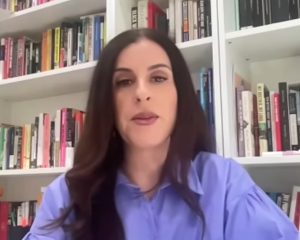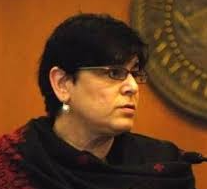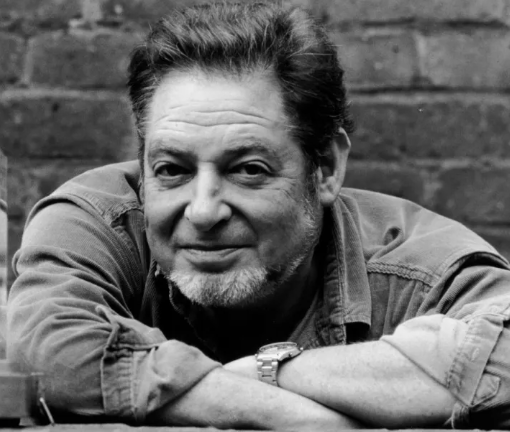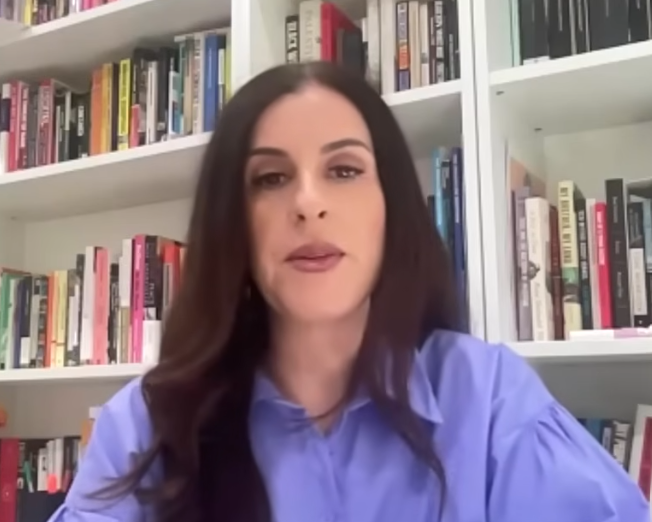17 August 2025
Steven Rose, who played the decisive role in establishing BRICUP in 2004, died on 9 July. Here is how The Times remembered him.
Steven Rose obituary: Vituperative neuroscientist
Academic who showed little tolerance for IQ testing, but made steps towards a treatment for Alzheimer’s, dies aged 87
The Times, Wednesday August 13 2025, 12.01am BST, The Times

Steven Rose had a personality of two halves. He “walks with the stoop of an academic but sits with his head cocked, alert like a boxer”, one journalist observed. In the first role, Rose was a dedicated researcher who patiently yet doggedly studied the mysteries of the brain — in the process, challenging received wisdom about learning and memory, paving the way for new treatments for diseases such as Alzheimer’s.
On the flip side of this was a scrappy man who was quick to eviscerate fellow neuroscientists, ideas or institutions that he deemed to be leading the profession in the wrong direction. “Combat is forced upon me,” he insisted. “I don’t go looking for combats. But they find me. When what I regard as bad or mistaken ideas are non-trivial, they need combating.”
Rose was quick to label his intellectual opponents “fantasists”, and even his penultimate book Genes, Cells and Brains in 2012 was an “angry” tome that boasted “abundant targets” and a “lethally impressive hit ratio”, as one reviewer observed.
An academic “with a strongly philosophical and political cast of mind”, Rose took a stance against the idea that human behaviour was determined by genes. He was adamant that “we are free to make our own futures, though in circumstances not of our own choosing”.
This view placed him in opposition to those thinkers who argued that human nature was largely honed by evolutionary forces, and Rose took no qualms with ferociously critiquing their views. Chief among his targets were the “reductionist” entomologist Edward O Wilson, the evolutionary theorist Richard Dawkins and the “romanticised Stone Age nonsense” of the cognitive neuroscientist Steven Pinker.
He also directed his wrath at the enthusiasm for IQ testing in education and employment in the 1970s. Rose believed the question of what constituted “intelligence” was problematic — arguing the word had much broader and diverse meanings than what could be encompassed in such tests — and he was adamant that intelligence was heavily reliant on a person’s environment.
He was also a vocal critic of the “pseudo-science” behind claims by thinkers such as the DNA pioneer James Watson that IQ tests showed inherent differences in intelligence between men and women, or people of different races. “Intelligence is always intelligence-in-context,” Rose said, adding for good measure: “Many would argue that someone who can make remarks like Watson’s is singularly devoid of social intelligence, for instance.”

He was honest in his books when there were no answers
Although he was quick to dismiss viewpoints he deemed inaccurate, Rose was refreshingly honest about the limits of his own work. He refused to dumb down the most complex aspects of neuroscience into sweeping simplifications, and one of the most common phrases in his book The 21st-Century Brain: Explaining, Mending and Manipulating the Mind (2005) was: “We just don’t know.”
Steven Peter Russell Rose was born into an Orthodox Jewish community in north London in 1938. His father Lionel Rose (formerly Rosenberg) was a chemistry teacher who became an intelligence officer during the Second World War. He later worked as an organiser for the Association of Jewish Ex-Servicemen and Women before founding an advertising agency. His mother Ruth (née Waxman) gave up her career to look after her children but later became co-director of her husband’s agency and ran it single-handedly after he died in 1959.
Rose’s dual interest in socialism and science could be traced back to the events of his childhood. He described how one of his earliest memories was a violent demonstration by the Blackshirts while his father was speaking against the fascists, and said that after being given a chemistry set for his eighth birthday he set up a chemistry lab in his garden.
After attending Haberdashers’ Aske’s boys’ school in Hertfordshire on a scholarship, he won another one to study at King’s College, Cambridge, where he graduated with a double first in biochemistry in 1959. Evidently talented, but young and ambitious, Rose decided he did not want to continue in a field where there was less scope to make science-altering discoveries. “I thought, ‘The genetic code has been solved; protein synthesis has been done. What’s the big next thing to understand? The brain. So where can I go to understand the brain?’” he recalled.
The sentiment went down as well as you might expect with his department, and he was “exiled” to complete a PhD at the Institute of Psychiatry in London in 1961. It turned out to be felicitous, because he met the LSE sociology student Hilary Chantler while in London at a New Left Review meeting. The couple married shortly afterwards and were together for more than 60 years until Rose’s death.
Even from this relatively young age, the young neuroscientist was interested in engaging the broader public in the knotty science of the mind. He wrote his first book explaining the basics of biochemistry to the general reader while still in his twenties. It was picked up by Penguin and published as the hugely successful paperback The Chemistry of Life in 1966.

He wrote The Chemistry of Life in his twenties
The following year Rose became one of the founding members of a London-based discussion group that held informal monthly meetings in the upstairs room of the Black Horse pub in Rathbone Place, London. It was the precursor of the Brain Research Association, which was later renamed the British Neuroscience Association and continues to this day.
After periods of postdoctoral research at Oxford, Rome and with the Medical Research Council in London, Rose became a professor of biology at the newly formed Open University in 1968. Aged only 30, he became one of the UK’s youngest professors. While at the university he established its brain and behaviour research group and remained as a professor there until 1999, though he continued to conduct research at the university for more than a decade afterwards.
Rose also took up visiting appointments in the United States, China and Australia and continued to write prolifically alongside his teaching. He penned an enormous number of papers on learning and memory and wrote several highly successful books, including The Making of Memory: From Molecules to Mind (1992), which received the Royal Society science book prize.

One of his prize-winning books
He wrote several of these publications with his wife Hilary, who was appointed professor of social policy at the University of Bradford in 1975. She survives him with their two sons, the farmer Simon, from Hilary’s first marriage, and the criminal defence lawyer Ben. Together, the couple wrote Alas, Poor Darwin: Arguments against Evolutionary Psychology (2000), Genes, Cells and Brains: Bioscience’s Promethean Promises (2012) and Can Neuroscience Change Our Minds? (2016).
They shared a keen interest in the social and legal aspects of science, and advocated for greater public engagement with ethics. They decried the shift towards an entrepreneurial focus — “wealth creation is now unabashedly formalised as the chief objective of science and technology policy” — and were among the founders of the British Society for Social Responsibility in Science in 1969. Rose also appeared as a panel member on BBC Radio 4’s Moral Maze for several years, and was awarded the Biochemical Society medal for excellence in public communication of science in 2002.
While researching cures for Alzheimer’s disease Rose’s work brought him into opposition with animal rights campaigners. He established an ethics committee with lay members before government legislation demanded it, reasoning: “Such discussions are important, as each side learns to respect and attempt to accommodate the views of the other.”
His efforts did not stop the hate mail, however. “When I informed an officer of one of the major ‘anti-vivisection’ organisations that our local animal rights movement included active members of a neo-Nazi group, her response was to ask me if I didn’t feel like Josef Mengele, the notorious concentration camp butcher. An odd question to address to a Jew,” he added.
Rose’s laboratory was a lively international hub of scientists. He had visiting researchers from countries including Argentina, France, Spain, Italy and Poland and he took a keen interest in global affairs. In 2002 Rose and his wife initiated a boycott of Israeli institutions in protest at strikes on Palestinians, backed by figures including Archbishop Desmond Tutu. The couple argued: “The choice today for civil society — and academics and researchers are a part of civil society — is to remain silent and do nothing or to try to bring pressure to be
Rose was recognised internationally for his work with the Sechenov and Anokhin medals (Russia) and the Ariens Kappers medal (the Netherlands). But one of the most promising elements of his research was his progress towards finding a novel treatment for Alzheimer’s disease, for which he won the Lilly award for best innovation in mental health in 2003.
In the latter half of his career, Rose started to look towards the future of neuroscience. In 2009 he was invited to deliver a centenary lecture at Bristol University and he assembled a talk entitled: The Future of the Brain: The Promise and Perils of Tomorrow’s Neuroscience. In it, he warned of the ways in which his colleagues were overreaching with their offers to “explain, mend and manipulate the mind”.
He was wary of the role of the state and big pharmaceutical companies in research and showed particular concern about the disputed borderlines between being undesirable and being ill. Rose called on his audience to question intolerant attitudes towards age-associated memory impairment, ADHD, compliance disorder, oppositional defiant disorder, disruptive behaviour and conduct disorder. “All of which I suspect I could have been prosecuted for or psychiatrically diagnosed with over the course of my career,” he said. “If I hadn’t been, I’d have been rather sorry that I’d failed.”
Steven Rose, neuroscientist and author, was born on July 4, 1938. He died of undisclosed causes on July 9, 2025, aged 87















